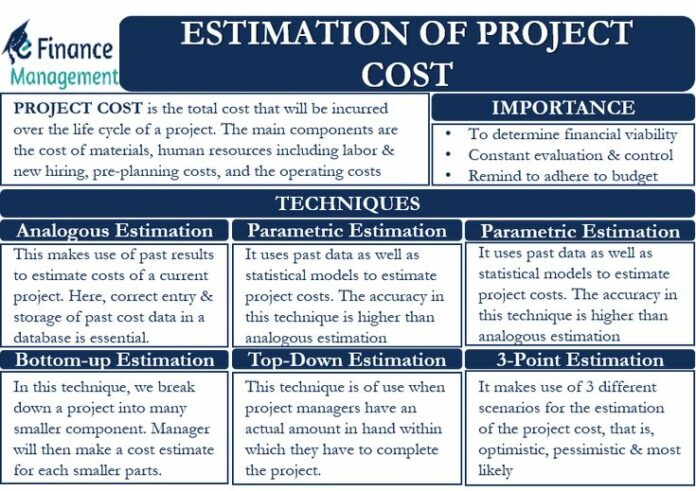Managing a project successfully requires the right skills and tools to estimate costs and develop a budget for the entire project. Cost estimation is the process of predicting the future financial expenses for a project accurately. Budgeting, on the other hand, involves the allocation of funds for a project’s various activities, resources, and expenses.
In this article, we explore the essential steps involved in cost estimation and budgeting in project management that can help you create a workable project plan and ensure its successful completion.
Understand the Project Objectives
To determine the necessary resources and estimate costs, you must fully understand the project objectives. You can use this information to identify the activities and deliverables required in the project. This will help you define the scope and cost the project.
Develop a Work Breakdown Structure (WBS)
A work breakdown structure (WBS) is a hierarchical framework that breaks down the project into smaller chunks of deliverables, activities, and tasks. The WBS helps identify dependencies, resources, and timelines for each of the activities. This way, you can estimate the costs, and allocate resources based on the WBS.
Identify and Estimate Costs
Once you know the activities and tasks required for the project, you can estimate the costs for each of them. Make sure to consider all the necessary resources, including personnel, equipment, vendors, and any other expenses that may arise. Take note that the cost estimates must be based on realistic assumptions to avoid project overruns.
Develop a Budget
The project’s cost estimates form the basis for developing a budget. At this stage, you must determine how much funding is available for the project and allocate it to each of the activities. The budget should be detailed and include provisions for any contingencies so that unexpected expenses can be managed.
Monitor and Control Costs
After the cost estimates have been developed, it is crucial to monitor the actual costs against the planned costs. Tracking the costs will help you control project expenses and measure progress. Project management software can be used to ease the process of tracking the project’s duration, cost, and performance.
Consider Risks
Project risks can have a significant impact on the project’s cost and schedule. During cost estimation and budgeting, it is essential to identify potential risks and develop contingency plans to manage them. This way, you can minimize the impact of any unforeseen events.
Review and Adjust the Plan
It is good practice to review the project’s cost estimates and budget periodically. This should be done to ensure that the project is on track and the estimates are accurate. If the project is experiencing an overage or shortfall, it may be necessary to update the plan and adjust the budget accordingly.
You might find these FREE courses useful
- Fundamentals of financial and management
- Engineering Project Management: Scope
- Optimizing Your Google Cloud Costs
- Product Cost and Investment Cash Flow Analysis
Communicate with Stakeholders
Effective communication with stakeholders is essential in project management. Once the cost estimation and budgeting process has been completed, communicate the plan to all stakeholders to keep them informed. The communication should include an explanation of the cost estimates and budget, risks, contingencies, and any changes that may have been made.
Conclusion
Cost estimation and budgeting are critical steps for successfully managing a project. By following a comprehensive process that involves understanding project objectives, developing a WBS, estimating costs, and developing a budget, you can set your project on a path to success. Regularly monitoring the project, addressing risks, and communicating with stakeholders will ensure that everyone remains informed and the project remains on track.
